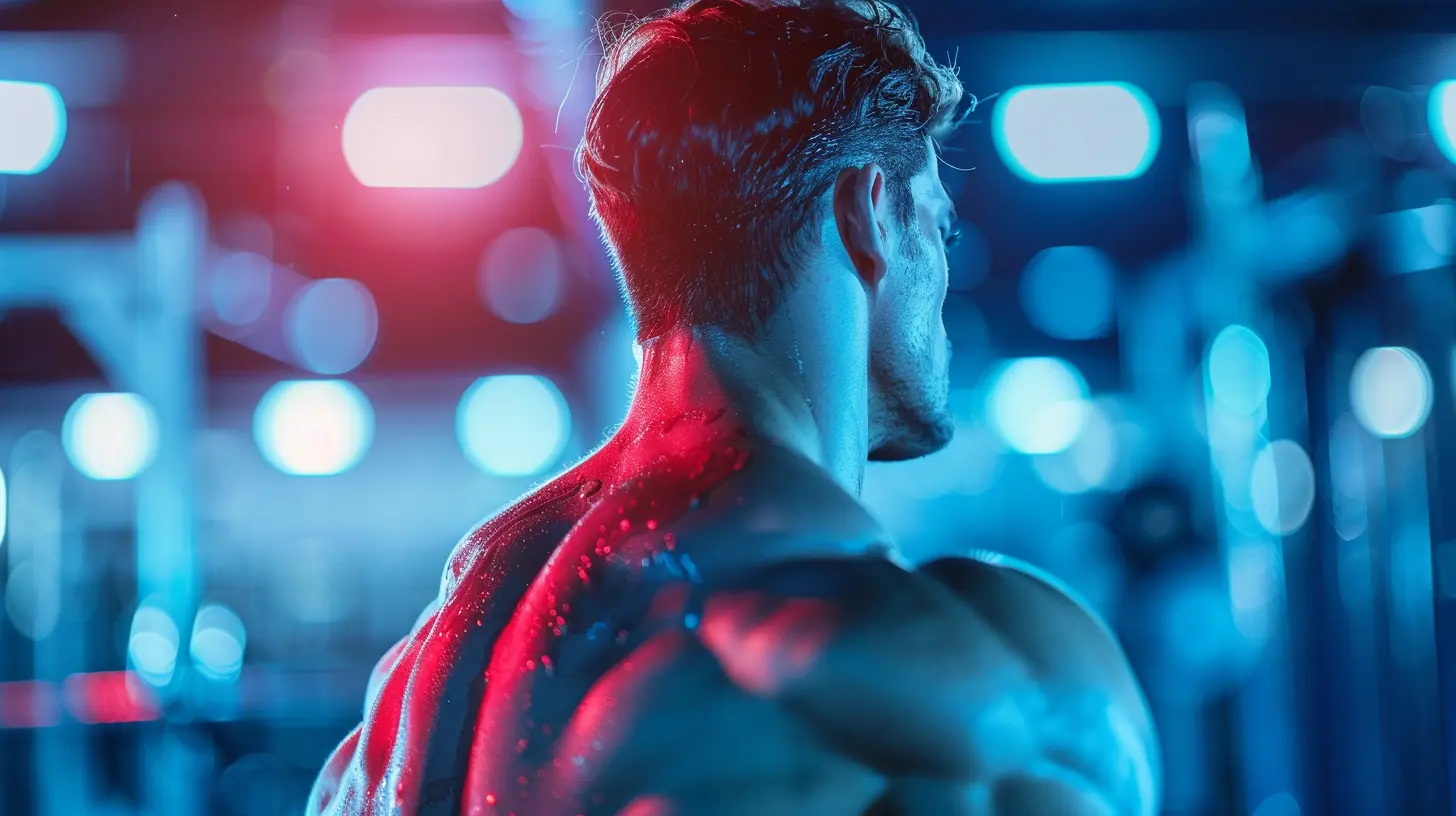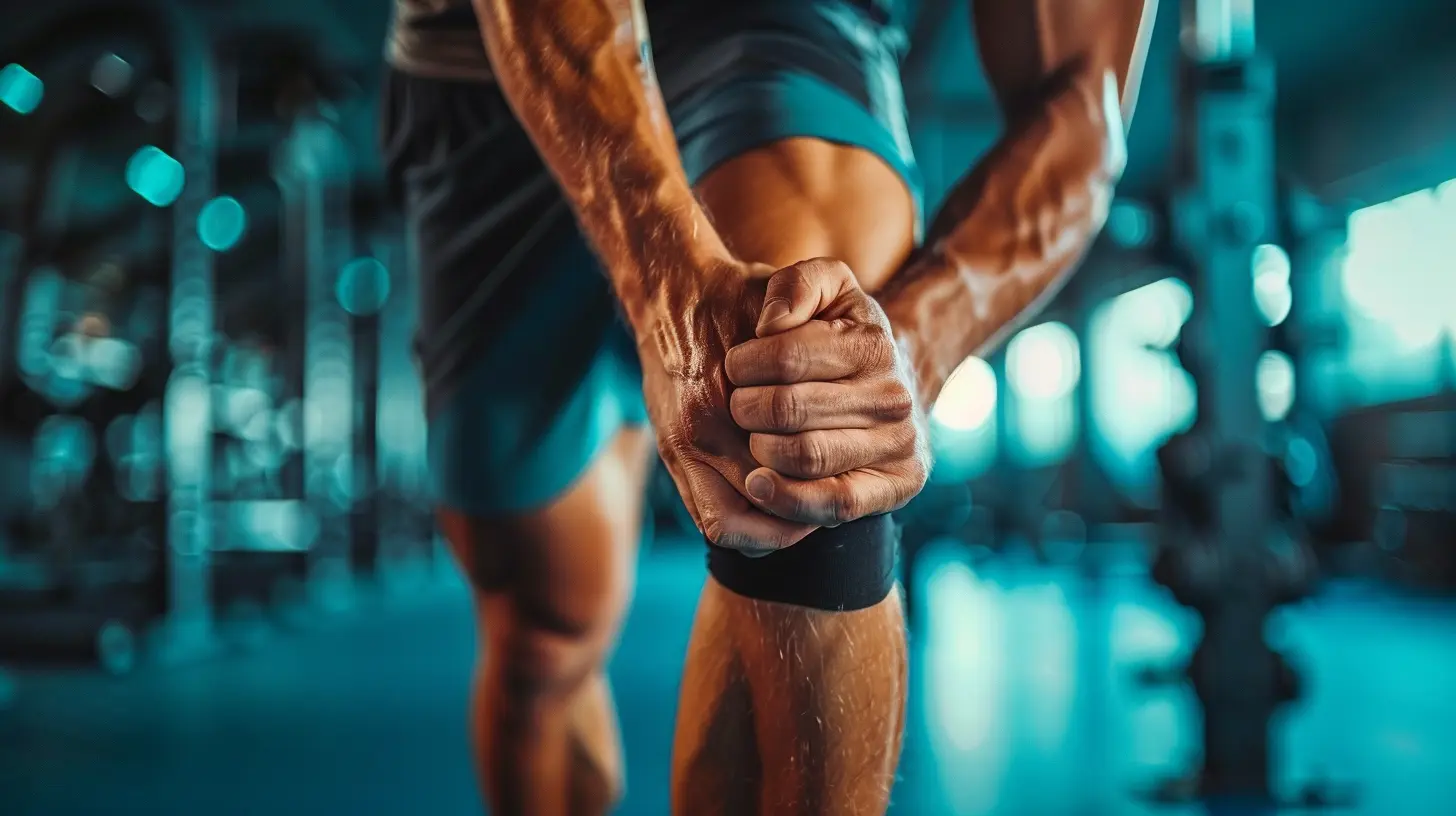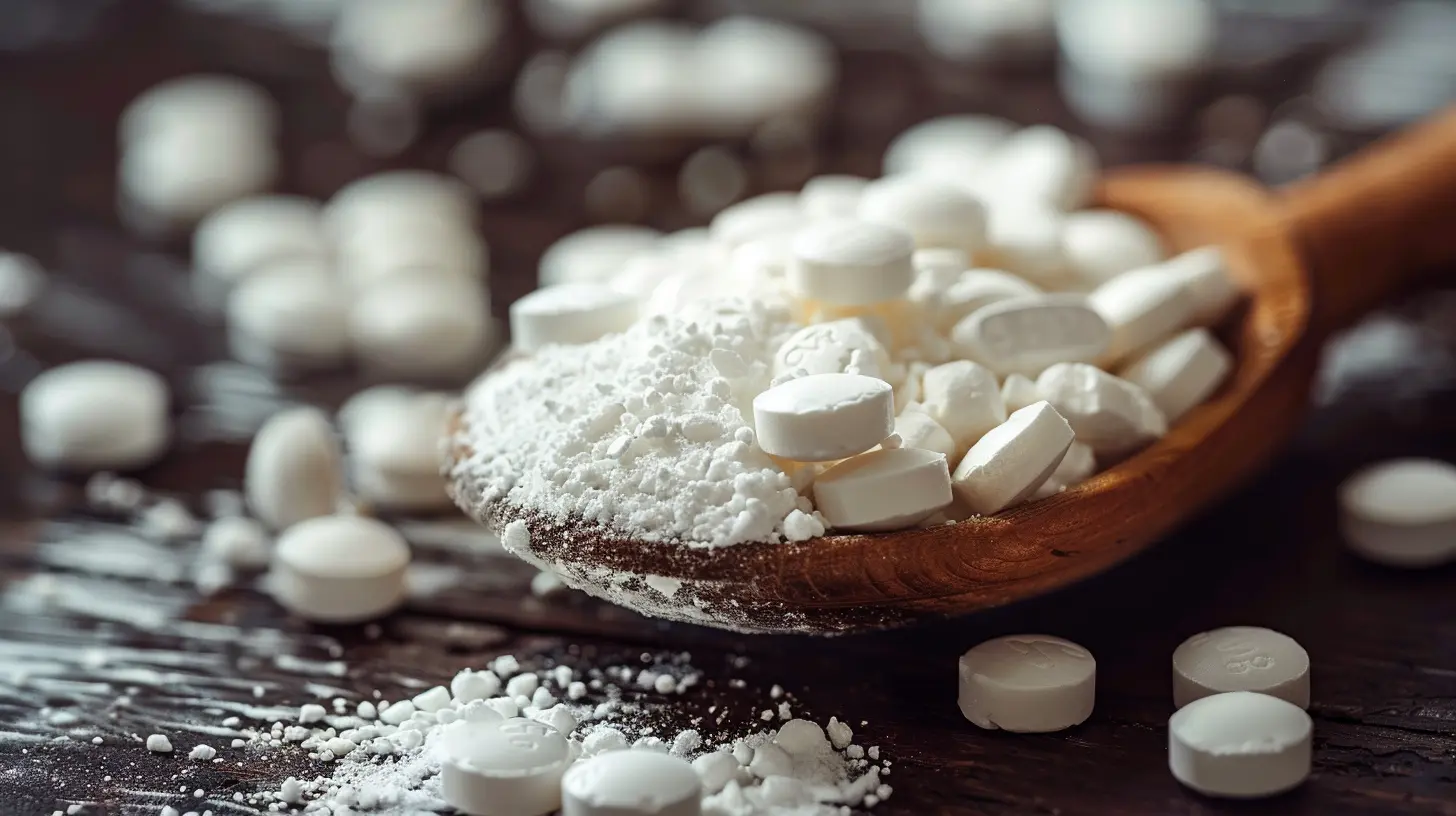The Role of Collagen in Post-Workout Muscle Recovery and Joint Health
13 May 2025
Ever finish a brutal workout and wonder why your joints feel like old rusty hinges or why your muscles scream the next day?
We've all been there.
Muscle soreness, joint stiffness, and sluggish recovery are the uninvited guests after a workout session. But here's the good news — there's a not-so-secret sauce that could change all of that: collagen.
Yep, that same protein buzzing on the health radar for glowing skin also plays a massive role in muscle recovery and joint health. Intrigued? You should be. Let's talk collagen and why it's the unsung hero of your post-workout game.
What Exactly Is Collagen, Anyway?
Think of collagen as the glue holding your body together. It's the most abundant protein in your body, making up about 30% of all proteins. It’s found in your skin, bones, muscles, tendons, and ligaments.Without it? You’d basically fall apart. No joke.
There are several types of collagen, but Types I, II, and III are the MVPs when it comes to muscle and joint support. They give your connective tissues their strength, help repair muscle fibers, and keep joints cushioned and springy like a well-oiled bike chain.
Why Your Body Needs Collagen After a Workout
Post-workout, your body enters repair mode. Muscles are repairing micro-tears, joints are recovering from repetitive stress, and inflammation needs calming.This is where collagen steps in like a champion recovery coach.
1. Muscle Repair and Growth
During strength training or intense cardio, your muscle fibers experience tiny tears. It’s a totally natural and necessary process for growth. But to build back stronger, your body needs amino acids — and guess what collagen is loaded with?Those exact amino acids.
Collagen is rich in glycine, proline, and hydroxyproline, which are essential for rebuilding and maintaining muscle tissues. Glycine also helps your body produce creatine, which supports muscle mass and energy levels.
2. Stronger, Healthier Joints
Your joints — especially knees, hips, shoulders — take a beating during physical activity. Collagen helps keep them strong and flexible by maintaining the integrity of the cartilage, the tissue that cushions your joints.Low collagen = worn-down cartilage = creaky, painful joints. Not ideal if you're trying to crush PRs or simply keep up with your workouts.
Supplementing with collagen can help improve joint mobility and reduce discomfort, making your recovery smoother and your training more sustainable long-term.
3. Faster Recovery Time
Here’s the kicker: collagen doesn't just help repair tissues — it helps repair them faster.By supplying your body with the specific building blocks it craves after a workout, collagen speeds up healing and reduces inflammation. So instead of being stuck on the couch with sore legs, you’re back in action quicker, feeling awesome.
The Science Behind It: What the Research Says
Okay, this isn’t just hype. Let’s get nerdy (for a second).Studies have shown that:
- Collagen supplementation improves joint pain in athletes and physically active individuals. In a 24-week study, athletes who took 10g of collagen daily reported less joint pain during exercise.
- A 2019 study published in the British Journal of Nutrition found that collagen peptides combined with resistance training enhanced muscle mass and strength in elderly men.
- Another study showed that collagen increased tendon thickness and mechanical strength, improving recovery and reducing risk of injury.
So the science definitely backs the benefits up.
Are You Getting Enough Collagen?
Here’s the deal: your body naturally produces collagen, but production declines with age, stress, poor diet, and intense physical activity. So if you’re over 25, hitting the gym hard, or not eating a balanced diet — you’re probably not making enough.That’s where collagen-rich foods or supplements come in handy.
Best Sources of Collagen for Recovery
Getting collagen into your diet isn’t as tough as you think. You've got options — and they’re delicious, too.1. Collagen-Rich Foods
- Bone broth – The gold standard. Simmered bones release collagen into the broth.- Chicken skin and fish skin – Surprisingly collagen-dense.
- Egg whites – High in proline.
- Citrus fruits – Not direct sources but help boost natural collagen production.
2. Collagen Supplements
If boiling bones isn't your thing (we get it), collagen protein powders or capsules are convenient and effective. Go for hydrolyzed collagen peptides — they’re easier to digest and absorb.Look for brands with added Vitamin C, which acts like collagen’s wingman, helping your body use it more effectively.
When Should You Take Collagen for Best Results?
Timing matters. For muscle recovery and joint health, the sweet spot is:🕒 Post-workout (within 60 minutes)
That’s when your muscles are craving nutrients. Toss some collagen into your protein shake or smoothie right after your workout. Some even take it 30-60 minutes before training to support joint lubrication and reduce stress on connective tissues.
Honestly, you can’t go wrong. What matters is consistency.
How Much Collagen Do You Need Daily?
There’s no one-size-fits-all, but for active folks, the sweet range is:💊 10-15 grams per day
Start with 10g and adjust based on how your body feels. Keep an eye on things like joint discomfort, muscle recovery speed, and skin/hair quality (yes, bonus perks!).
Collagen vs. Other Proteins — What's the Difference?
You might be thinking, “I already take whey protein. Do I really need collagen too?”Good question.
Whey is great for muscle building because it’s high in branched-chain amino acids (BCAAs) like leucine, isoleucine, and valine. Collagen, on the other hand, offers amino acids that target joint and connective tissue support.
So while whey builds bulk, collagen repairs the scaffolding.
Think of whey as the bricks and collagen as the mortar holding everything together. You need both for a strong, stable physique.
Real Talk: What Can You Expect?
If you stay consistent with collagen for 4-8 weeks, here’s what you might start noticing:✅ Less post-workout soreness
✅ Better joint flexibility
✅ Reduced stiffness in knees, shoulders, and elbows
✅ More energy during workouts
✅ Healthier skin, hair, and nails (surprise bonus!)
Sounds too good to be true? It’s not magic — it’s just giving your body the fuel it’s been silently begging for.
Collagen Myths You Should Ignore
Let’s clear some air real quick:❌ "Collagen doesn’t work if you eat enough protein."
Truth: Collagen provides specific amino acids that most standard proteins lack.
❌ "Collagen is just for beauty."
Truth: It’s like calling water just for hydration — technically true, but massively underrated.
❌ "You have to be old to need collagen."
Truth: If you train hard, you’re using up collagen faster than your body can replace it, no matter your age.
Who Should Definitely Consider Collagen?
👉 Athletes👉 Weekend warriors
👉 Runners
👉 Lifters
👉 CrossFitters
👉 Anyone over 25
👉 Anyone recovering from injury
Basically, if you want to keep moving pain-free and recover like a boss, collagen is your new best gym buddy.
Bottom Line: Collagen = Your Recovery Superpower
Recovery isn’t just about relaxing. It’s about repair, rebuilding, and showing up stronger next time. Collagen helps you do all that — naturally.So instead of finishing your workout and leaving your body to fend for itself, treat it like a machine. Refuel it. Rebuild it. Give it collagen.
Because when your muscles and joints are healthy, you don’t just train harder — you live better.
Time to recover like a champ.
all images in this post were generated using AI tools
Category:
Post Workout RecoveryAuthor:

Holly Ellison
Discussion
rate this article
4 comments
Ryan Martin
Collagen: because joints need their snacks!
May 18, 2025 at 4:20 AM

Holly Ellison
Absolutely! Collagen provides essential support for joint health and aids in muscle recovery, making it a great post-workout addition.
Meagan McGarvey
Supporting your body is so important, well said!
May 16, 2025 at 4:28 PM

Holly Ellison
Thank you! I’m glad you found the insights on collagen valuable for recovery and joint health!
Merida McIntire
Who knew collagen was the unsung hero of post-workout recovery? Think of it as your muscles’ best friend, always there to help them bounce back and keep joints happy!
May 15, 2025 at 2:24 AM

Holly Ellison
Thanks for your insightful comment! Indeed, collagen plays a crucial role in supporting muscle recovery and joint health, making it an essential ally for post-workout care.
Capri Duke
Collagen plays a crucial role in muscle recovery and joint health after workouts. Incorporating collagen supplements can enhance your recovery process and support overall mobility.
May 14, 2025 at 3:00 AM

Holly Ellison
Thank you for your insight! I agree that collagen supplements can be beneficial for enhancing recovery and supporting joint health after workouts.



